Uzbekistan and Mozambique establish diplomatic relations
Mozambique: “They pointed a gun at my daughter’s head” – human rights activist
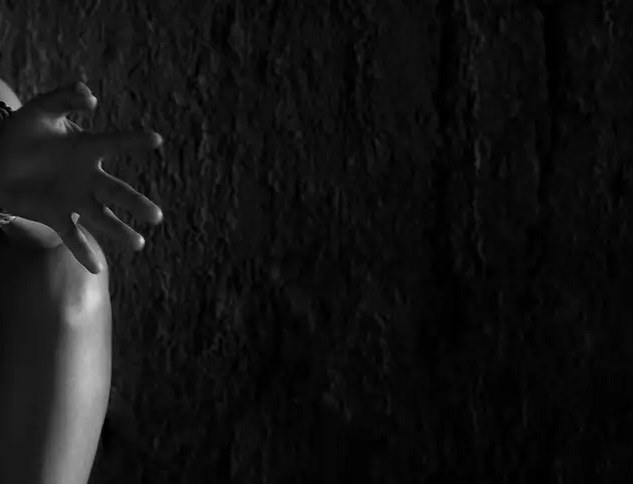
FILE - For illustration purposes only. [File photo: : DW]
Days after the local elections, journalists and activists in Mozambique are still reporting threats. A human rights activist tells DW how he was held hostage in Nampula, and MISA-Mozambique is expressing concern about the death threats against the chairman of TV Sucesso.
The case of Gamito dos Santos, a prominent human rights activist in the city of Nampula involved in defending protesters arrested in that province, is an example of the persecution and intimidation.
A few days ago, his house was invaded by unidentified people who held him and his family hostage, even pointing a gun at his seven-year-old daughter’s head. They also confiscated his work equipment, including cell phones and a computer.
This was not the only case. On Monday (13-11), MISA-Moçambique expressed concern about the death threats directed at the chairman of TV Sucesso, Gabriel Júnior, who used his programme “Moçambique em Concerto” to complain about it last Sunday.
Activist Gamito dos Santos later said, in an interview with DW Africa, that he suspects that the attack against him may be related to his active defence of young people recently detained following demonstrations called by Renamo.
DW Africa: How do you describe the moment of the invasion of your home and what the attackers wanted?
Gamito dos Santos (GS): That day, the criminals appeared at my house. An average of 15 or 16 people arrived. When they arrived, they destroyed the grilles and entered. They found me in the room and told me they wanted my work computer. They also asked me for my phones and took two of my phones. Then they started to intimidate me. They took my seven-year-old daughter and put a gun to her head.
Then they told me that I should put the password on the computer to allow them access. So I unlocked the computer and handed it to them. Minutes later, they received a [phone] call and they all went out to the balcony. It seemed to me that they had turned the loud speaker on the phone they were using and they started communicating. Presumably a person was giving them guidance on what [they should] do with me.
At that moment, I realized that I was between life and death. So I tried to challenge them. I took my youngest son, who was two years old, and jumped over the wall.
DW Africa: What do you think could be behind the terror you report seeing last week?
GS: I assume that has been my approach over the last few weeks, which was leading the process of restoring the freedom of people arrested during the demonstrations in Nampula. Furthermore, in their trial, I coordinated all the action with the Mozambican Bar Association and the Nampula Provincial Council so that they had legal assistance and could be released. And we achieved that. On the first day they tried nine people, on the second 49. They were all released.
On the third day, they tried 35 people but they were all convicted and each of them had to pay 2,500 meticais [about €36.00] for provisional release. But then I challenged them and said we wanted to appeal the decision, showing, with evidence, that the decision was illegal and unfounded. So, I think they came after all these elements, and the evidence, because the only activist in Nampula who had all the information related to the evidence was Gamito. There was no other person.
DW Africa: Regarding the invasion of your home, the press in Nampula also wrote that monetary amounts were looted…
GS: When [the attackers] came back from the phone call they were making and couldn’t find me, they asked my wife for money. She had some money saved, around 12,000 meticais [€175.00]. They didn’t take anything else – it’s clear they didn’t come to steal things.
DW Africa: In general, how do you currently analyze the space for the exercise of human rights and also the space for the work of activists in Mozambique?
GS: Activists are in danger. We are living in a dark time, the situation is complicated. In my case, for example, they pointed a gun at my daughter’s head. She can no longer go to school because she is traumatised. This all puts me in a situation where, in my own country, I am afraid. For example, as I speak, I have already received several calls threatening me. My wife received several calls, warning her that I should keep quiet.
DW Africa: Do you think the situation has always been like this, or has it gotten worse?
GS: Since President Nyusi took power, the situation has worsened. He trained more police officers than doctors, nurses and teachers. All this to intimidate citizens – Nyusi uses the police to intimidate ordinary citizens.



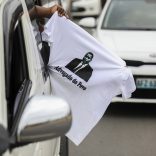
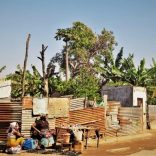

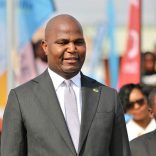
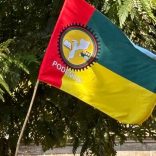




Leave a Reply
Be the First to Comment!
You must be logged in to post a comment.
You must be logged in to post a comment.